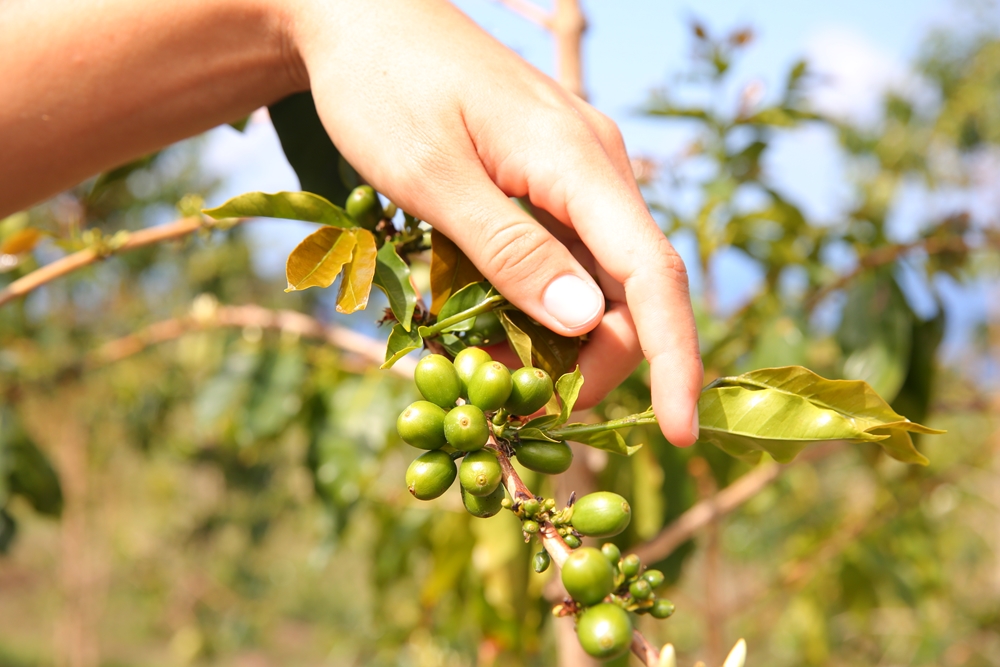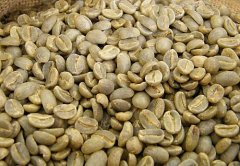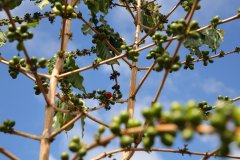Fresh and Natural Hawaiian Volcano Coffee-Kona Coffee cultivated by Volcano Goddess tears

Professional coffee knowledge exchange more coffee bean information please follow the coffee workshop (Wechat official account cafe_style)
Learn first-hand about the coffee making process and various Hawaiian delicacies at Greenwell Farm in Kona Coffee area.
Excellent! Kona coffee cultivated by tears of Hawaiian volcano goddess
The volcano on the big island is the goddess of fear and love of the local residents, afraid of the goddess's anger, and her home is torched instantly, but she also loves the tears left by the goddess after anger, high temperature and thick magma, which forms a special soil after cooling. it has become one of the unique conditions for the growth of "Kona Coffee". Plants can't grow without sunshine, but coffee beans also need to be given proper shade. Hawaii, which is surrounded by the sea, because the sea adjusts the climate, the sun in the morning becomes soft through moisture, and by noon, the water vapor in the mountains condenses into fog, protecting the tree species.
There are no high mountains on the island, and the white clouds in the sky are surging with the wind, forming a sunshade that turns on and off automatically with the rhythm of nature. In the coffee country, "Kona Coffee" is like an aristocratic girl, most gently cared for by nature.
"Kona Coffee" is not a native plant of the big island. The earliest records can be traced back to 1813, when the Spaniards planted the first coffee tree, but it really flourished in the 19th century, when the bloodline inherited from Arabica, the three major coffee species in the world. she is not like the thick Italian coffee, nor the coarse mineral taste of Central and South American coffee, the combination of sour and sweet is very mild, and the aftertaste shows the aroma of fruit. People who don't like it think that "Kona Coffee" is too light, but this "fresh and natural" flavor is unique to "Kona Coffee" in the world of coffee.
UCC, a Japanese coffee brand, is no stranger to tourists. It sets up a farm in Hawaii. In response to Japan's love of Hawaii tourism, the farm is on the hillside. It is free to visit, and there are enthusiastic commentators who use English to convey coffee growing knowledge.
A pack of 100% pure Kona coffee 4oz is about $12, which is a medium-to-high price compared to ordinary coffee. 100% individual coffee beans are usually bought in Hawaii, and the farm exhibition offers a taste, which is reassuring to drink after drinking. Remind travelers that if you buy at the supermarket, remember to look at the packaging ingredients. Although some of the labels try "Kona coffee Kona", only 5% of the coffee beans may be Kona coffee beans.
DIY experience! Teach you to personally bake your own Hawaiian coffee.
In addition to buying ready-made ones on the farm, travelers also have a special option to "roast their own coffee beans", which can be arranged according to their own mood without having to make an appointment in advance. Choose the quantity and the degree of baking, and then start with the turquoise raw beans, pour them into the baking machine, listen to the sound, observe the color, and finally pour them into the wooden box to dissipate heat, all by yourself, plus intimate customer-made outer packaging. it really makes people want to make a dozen or twenty packs as a companion gift!
.
Important Notice :
前街咖啡 FrontStreet Coffee has moved to new addredd:
FrontStreet Coffee Address: 315,Donghua East Road,GuangZhou
Tel:020 38364473
- Prev

Hawaii Kona Coffee Hawaii 100% Kona Coffee beans Kona Coffee Brand
Professional coffee knowledge exchange more coffee bean information please follow the coffee workshop (Wechat official account cafe_style) first-hand understanding of the coffee production process and all kinds of Hawaiian cuisine at Greenville Farm in Kona Coffee area. Hawaii is a beautiful island that began to grow coffee in the 18th century. Most of the coffee is grown on Kauai Island and the Big Island of Hawaii, with an ideal climate.
- Next

Hawaiian Coffee Hawaiian Kona Coffee Hawaiian kona Coffee Hawaiian Volcano Coffee introduction
Professional Coffee knowledge Exchange more coffee bean information Please follow the coffee workshop (Wechat official account cafe_style) to know first-hand the coffee making process and various Hawaiian delicacies at Greenville Farm in the Kona Coffee area. Kona coffee beans made in Hawaii have the perfect appearance their fruit is unusually full and shiny. The coffee is rich and fragrant with cinnamon.
Related
- Detailed explanation of Jadeite planting Land in Panamanian Jadeite Manor introduction to the grading system of Jadeite competitive bidding, Red bid, Green bid and Rose Summer
- Story of Coffee planting in Brenka region of Costa Rica Stonehenge Manor anaerobic heavy honey treatment of flavor mouth
- What's on the barrel of Blue Mountain Coffee beans?
- Can American coffee also pull flowers? How to use hot American style to pull out a good-looking pattern?
- Can you make a cold extract with coffee beans? What is the right proportion for cold-extracted coffee formula?
- Indonesian PWN Gold Mandrine Coffee Origin Features Flavor How to Chong? Mandolin coffee is American.
- A brief introduction to the flavor characteristics of Brazilian yellow bourbon coffee beans
- What is the effect of different water quality on the flavor of cold-extracted coffee? What kind of water is best for brewing coffee?
- Why do you think of Rose Summer whenever you mention Panamanian coffee?
- Introduction to the characteristics of authentic blue mountain coffee bean producing areas? What is the CIB Coffee Authority in Jamaica?

